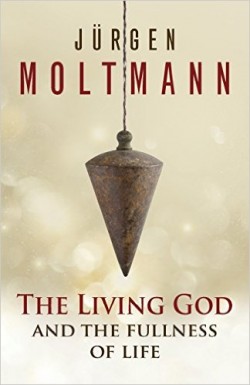Moltmann friends, it’s been a big weekend. Those of you who pre-ordered Moltmann’s latest book, The Living God and the Fullness of Life, most likely have found it in your mailbox. I have only just started reading mine, but I am loving it so far (surprise to no one ever). I’m going to share with you the paragraph from the introduction that deeply resonated with me. To put it in context, I’m also sharing one of the first sentences of the book which is the thesis of what Moltmann’s writing about:
Modern life proceeded not from religion, but from the criticism of religion. In all criticism of religion not only is something won, but something is lost as well. In Western criticism of religion, what was gained was the new value given to life in this world; what were lost were the transcendent spaces in which this life moves.
Okay let me stop there for a moment, because this is already such a good point. What makes me so grateful for my atheistic and secular friends is their utter lack of tolerance for any form of escapism. They just won’t put up with it, because it keeps us from doing our job as decent human beings and it solves nothing and it takes us away from the beauty of life in the here and now. On this point, I could not agree more, and I share their lack of tolerance. Escapist religion needs to die. It won’t, of course, because it’s very very attractive. But people of faith ought to grow up and grow out of it, because that is not the story of God. But here is the second point: much as we need to strip religion of this escapism, we also must recognize- indeed it is critical, an absolute emergency- that we have thrown the baby out with the bathwater when we have rid the world of any soul at all, of any transcendence. We cannot live like that. In fact, it is killing us. We are not meant to be soulless machines of reason. Which brings us to this paragraph, many pages later in his introduction:
Modern high-power technology produces major experiments that are unable to contribute to human wisdom, because we cannot retrieve the radiation issuing from the nuclear power plants that have been destroyed any more than we can retrieve the genes we have modified or the viruses we have bred once they have ceased to be under our control. No wisdom can be acquired through a worldwide war fought with weapons of mass destruction, because it is improbably that anyone would be able to survive. No one will become wise through the major-project ‘modern world,’ which goes hand in hand with the population explosion and the urbanization of men and women, and in which the climate balance of the earth is changed, because we cannot retrieve things once they become dangerous. In the Enlightenment age, humanity became involved in a major project with uncertain outcome. What began naively as the elucidation of the riddles of the world and as the stripping away of life’s wonders has become a danger for the world with a universal risk to life. The world without mysteries has itself become the mystery.
Modernity stripped the world of its wonder in many ways, and what then resulted was not wisdom but efficiency, greed, negative pragmatism, hollow utilitarianism. It has had terrifying results on our care of the earth, which is now in crisis, because we have seen ourselves not as cultivators and stewards but end-users. In other words, it has created distance. Distance between one another, when we see other people as casualties or entities to control or markets on which to prosper. And it has created distance between us and God, which in many cases means we can no longer see beyond ourselves.
What does this mean for the modern world? All of our knowledge has not created progress. It has created catastrophe. We are now watching the consequences of our actions, and we are realizing they are, in many ways, beyond saving. The crises we have caused cannot be undone. They can only be managed. And the only way we can “manage” them, the only way we can move forward at all, is to return to wisdom. We are being called again to the “transcendent spaces in which this life moves.”
And then on the next page he says this:
We do not exist in the age of Enlightenment or in a ‘world that has come of age,’ but- if we accept Kant’s definition of enlightenment- in times of self-imposed infancy…
Self-imposed infancy. We are choosing, both individually and collectively and globally, to eschew our responsibilities. We are choosing to escape, ignore, minimize, delay, and it has created nothing but danger and crisis which threatens global life itself.
Friends, it is time to grow up. It is time to seek wisdom as our most important asset. It is time to seek life in its fullness- not small life, not easy life, not self-imposed childish life. Not faith-in-modern-progress life. Fullness of life, with all its mysteries.

Add Your Voice!